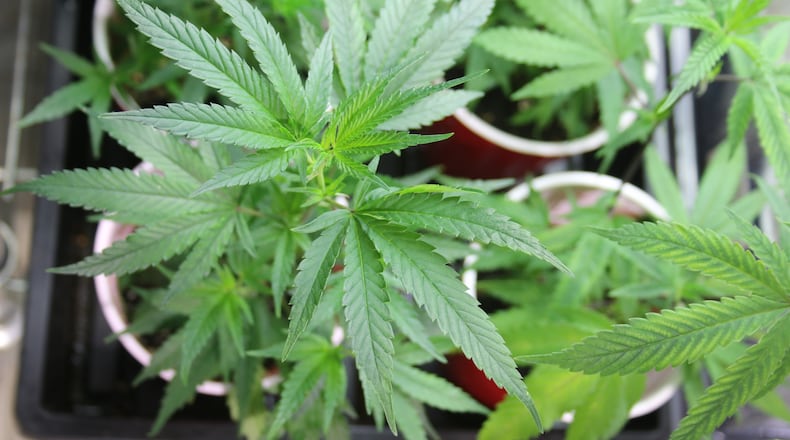“This is a little bit unusual,” city attorney Stephen McHugh said. “Normally when we are doing a moratorium, we’re putting a moratorium on accepting an application under our regulations. This is unusual because this is a statewide issue that was voted upon and was passed by the voters.”
McHugh added that the moratorium may have to be extended as the state legislature considers changes to the Issue 2 law approved by voters in November. On Monday, an Ohio Senate Committee proposed several changes, including implementing a ban on homegrown marijuana, which would be allowed by Issue 2; increasing the tax on recreational weed and directing all of it to the state general fund, law enforcement training, substance abuse treatment and safe driver training.
Beavercreek passed both the moratorium and an ordinance changing the city’s business regulations to “prohibit adult use cannabis operators” within the city.
Councilmember Pete Bales questioned the timing of the moratorium last Monday, asking whether or not council could delay the process to gain better feedback from Beavercreek residents. However, McHugh said, as Issue 2 goes into effect this Thursday, the state may further change Issue 2 to exclude cities from the permitting process, essentially putting cities on a deadline.
“I think it is prudent to enforce our rights under that section (of state law). The problem though, is that we don’t know what the state regulations are going to be, and for that reason we’re adopting a moratorium until we have a better idea,” McHugh said, adding that council may go back and amend the ordinance later based on state action.
“This is a way to get out in front, even if it needs to be tweaked down the road once the state takes their action,” Mayor Bob Stone said during the council meeting. “But it’s a way to at least do our due diligence to make sure something doesn’t slip through the cracks.”
Beavercreek has one existing medical marijuana dispensary, Harvest of Beavercreek. City officials say the legislation won’t affect the business’ current operations.
Nearly 57% of Ohioans approved state Issue 2, and the law takes effect Thursday, Dec. 7. One of the provisions of Issue 2 allows current businesses with a medical dispensary license to subsequently apply for a recreational license. According to the newly enacted Ohio law, if the business applies for and gets a recreational marijuana license, the city has 120 days to pass an ordinance that would prohibit the business’ operation as a recreational marijuana facility. The business then has 60 days to file a ballot issue with the county Board of Elections, and voters would then decide whether or not the business should be allowed to sell recreational marijuana.
Harvest of Ohio declined to comment.
Several other Dayton communities have approved moratoriums, including Kettering, Centerville, and Washington Twp. Troy, Miamisburg, Miami Twp. and others are weighing similar measures.
About the Author


